Evergreen’s Climate Justice and Resilience Speaker and Event Series is centered on the Climate Academy program, and is hosted by multiple programs that study climate themes. All students, faculty, staff, and the general public are invited to join these events on Zoom. Announcements of speakers and events, ways to access the online events, and background links and documents, will be posted here. Soon after each event is over, videos will also be posted on the quarterly speaker series pages. Many thanks to Evergreen Media Services staff for their hard work in making this remote series possible.
The speaker and event series builds on the Anthropocene series (2015-16), two Indigenous Climate Justice Symposia (2015-17), the “Water is Life” forum (2017), “The Waters Connect Us” forum (2018), the “Nurturing Roots” forum (2019), and other collaborative events at Evergreen. The speakers and events listed below are part of the 2020-21 series:
Fall 2020 Speaker Series
SEPT. 27: Fall Convocation Panel on Disaster Resilience
OCT. 27: Dr. Michael Méndez, author of Climate Change from the Streets
NOV. 10: Dr. Kyle Whyte, Indigenous climate scholar, U. of Michigan
NOV. 18: Professor Lane Selman, Culinary Breeding Network
FALL WEEK 9: Evergreen Prof. Pauline Yu, on Climate Change and Aquaculture
WINTER 2021 SPEAKER SERIES (details below)
JAN. 25: Evergreen Prof. Ruth Hayes, on “Eco-Media; the Environmental Footprint of Media and the Myth of the Cloud”
FEB. 6: Sámi Perspectives on Green Colonialism: Response to Climate Change (Sámi National Day)
FEB. 8: Prof. John Bolte, on Climate Resilience Modeling
FEB. 20: Toshi Reagon on Parable of the Sower opera
FEB. 24: Evergreen Prof. Shangrila Joshi, on “Climate Justice in Global Context”
Spring 2021 Speaker Series
SPRING WEEK 1: Julie Barber (Swinomish Tribe Senior Shellfish Biologist) & Amanda Kelley (UA-Fairbanks Ocean Acidification Research Center)
APR. 14: Zoltán Grossman, Alex McCarty, and Conceptualizing Place students presenting publication on removing barriers to salmon runs
APR. 24: José Gómez Farmworker Justice Day / “Farmworkers’ response to COVID-19 and wildfire danger using multigenerational movement organizing as an ‘ecosystem'”
MAY 12: Prof. Amalia Leguizamón on “Environmental Injustice and Genetically Modified Soybeans in Argentina”
MAY 13: Rob Smith (U.S. Forest Service) on “Climate Change Modeling With Lichen Communities”
MAY 26: Evergreen Emeritus Prof. Jeff Antonelis-Lapp, with “A Virtual Field Trip in the Nisqually River Watershed”
Evergreen Prof. Ruth Hayes, on “Eco-Media; the Environmental Footprint of Media and the Myth of the Cloud”
Monday, January 25, 2021
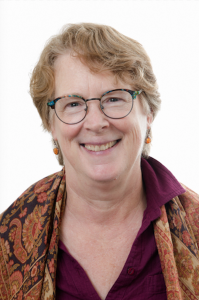 Evergreen faculty Ruth Hayes will be speaking about “Eco-Media; the Environmental Footprint of Media and the Myth of the Cloud,” hosted by Mediaworks (Laurie Meeker & Ruth Hayes). Ruth Hayes is a member of the faculty in animation at The Evergreen State College, teaching animation theory and practice in broadly interdisciplinary contexts. Her creative research involves animated experiments in film, video and digital media as well as flipbooks and other pre-cinema formats. Ruth earned her MFA in Experimental Animation at California Institute of the Arts, and her BA in Visual and Environmental Studies at Harvard College.
Evergreen faculty Ruth Hayes will be speaking about “Eco-Media; the Environmental Footprint of Media and the Myth of the Cloud,” hosted by Mediaworks (Laurie Meeker & Ruth Hayes). Ruth Hayes is a member of the faculty in animation at The Evergreen State College, teaching animation theory and practice in broadly interdisciplinary contexts. Her creative research involves animated experiments in film, video and digital media as well as flipbooks and other pre-cinema formats. Ruth earned her MFA in Experimental Animation at California Institute of the Arts, and her BA in Visual and Environmental Studies at Harvard College.
The two preparatory readings are available as ebooks from the Evergreen Library:
1.) Maxwell, Richard, & Miller, Toby. Greening the Media (Oxford University Press, 2012), Introduction, Ch. 1.
2.) Bozak, Nadia. The Cinematic Footprint: Lights, Camera, Natural Resources (Rutgers University Press, 2011), Introduction, Ch. 1.
10:00 am- 11:15 pm.
The presentation and discussion are posted on YouTube:
Sámi Perspectives on Green Colonialism: Response to Climate Change
Saturday, February 6, 2021 (Sámi National Day)
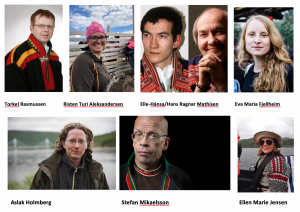
The event consists of a panel with Torkel Rasmussen, Risten Turi Aleksandersen, Hans Ragnar Mathisen, and Eva Maria Fjellheim, plus individual conversations with Stefan Mikaelsson and Aslak Holmberg, all moderated by Ellen Marie (Elle Márjá) Jensen.
The discussions share first-hand experiences of the ways in which ‘green’ approaches to mitigating climate change are perpetuating destructive colonial practices among the Sámi. These practices–including wind projects, dams, railroads, and mining—follow centuries of erasure, oppression, biological racism, and now climate change itself, which is dramatically disrupting basic traditions such as reindeer herding, fishing, and cross-border relations. How can we best support Sámi efforts to ensure that solutions to climate change do not undermine Sámis’ UN-recognized rights to land, language, and culture–all of which are interconnected? The event centers the perspectives and voices of Sámi people in Sápmi who represent activists, scholars, educators, reindeer herders, fishers, and artists.
This special 3-hour webinar includes both recorded Zoom conversations and live Q&A with Ellen Marie. The event is sponsored by the academic program “Climate Change & Colonization in the Arctic: Who are the Sámi?” (Marja Eloheimo), as part of the Climate Justice series of events at The Evergreen State College. It is available to the public through the YouTube link below.
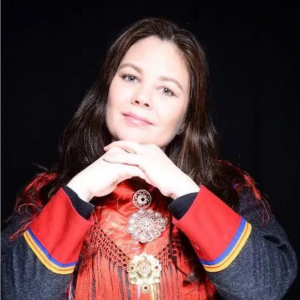 This panel will feature the commentator Ellen Marie (Elle Márjá) Jensen, Ph.D., who is both Sámi from Finnmark Province in what is now Norway and American from Minneapolis, Minnesota. She earned her PhD in Social Sciences and Humanities in 2019 with the study Diasporic Indigeneity and Storytelling Across Media: A Case Study of Narratives of Early Twentieth Century Sámi Immigrant Women from UiT, The Arctic University of Norway. Jensen also holds a Master’s degree in Indigenous Studies and English Literature from UiT. Her scholarship broadly addresses Sámi and Indigenous studies, feminist/gender studies, and migration. Currently, she is a guest researcher at the Centre for Women’s and Gender Research at UiT. Ellen Marie is author of We Stopped Forgetting: Stories from Sámi Americans (2012) and editor/translator of What We Believe In: Sámi Religious Experience and Beliefs from 1593 to the Present (2015). She has also recently published “Conceptualizing Oktavuohta as a Storytelling Methodology in Sámi Research.” Volume 4, Issue 1, 2020. Dutkansearvvi diedalaš áigečála |Saamen kielen ja kulttuurin tutkimusseura |Sámi language and culture 12.
This panel will feature the commentator Ellen Marie (Elle Márjá) Jensen, Ph.D., who is both Sámi from Finnmark Province in what is now Norway and American from Minneapolis, Minnesota. She earned her PhD in Social Sciences and Humanities in 2019 with the study Diasporic Indigeneity and Storytelling Across Media: A Case Study of Narratives of Early Twentieth Century Sámi Immigrant Women from UiT, The Arctic University of Norway. Jensen also holds a Master’s degree in Indigenous Studies and English Literature from UiT. Her scholarship broadly addresses Sámi and Indigenous studies, feminist/gender studies, and migration. Currently, she is a guest researcher at the Centre for Women’s and Gender Research at UiT. Ellen Marie is author of We Stopped Forgetting: Stories from Sámi Americans (2012) and editor/translator of What We Believe In: Sámi Religious Experience and Beliefs from 1593 to the Present (2015). She has also recently published “Conceptualizing Oktavuohta as a Storytelling Methodology in Sámi Research.” Volume 4, Issue 1, 2020. Dutkansearvvi diedalaš áigečála |Saamen kielen ja kulttuurin tutkimusseura |Sámi language and culture 12.
10:00 am-1:15 pm
The presentations and discussion are posted as a playlist on YouTube:
Prof. John Bolte, on Climate Resilience Modeling
Monday, February 8, 2021
 Professor John Bolte, of the Oregon State University (OSU) College of Agricultural Sciences, will be speaking on “Modeling Wildfire in Oregon,” hosted by Computer Science Foundations.
Professor John Bolte, of the Oregon State University (OSU) College of Agricultural Sciences, will be speaking on “Modeling Wildfire in Oregon,” hosted by Computer Science Foundations.
12:00-1:30 pm.
Toshi Reagon on Parable of the Sower
Saturday, February 20, 2021
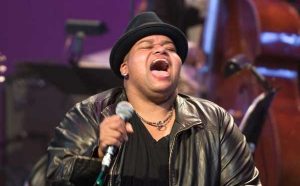 Toshi Reagon is a talented and versatile singer, composer, and musician with a profound ear for sonic Americana—from folk to funk, from blues to rock. She has performed in venues from Carnegie Hall and the Paris Opera House to music festivals and local clubs, and collaborated with many well-known artists. Toshi Reagon will be performing excerpts from the opera based on Octavia E. Butler’s book Parable of the Sower, which she created with her mother Bernice Johnson Reagon. She will also discuss the role of the artist in times of crisis, including the pandemic, the climate crisis, and the ongoing struggle for racial and social justice.
Toshi Reagon is a talented and versatile singer, composer, and musician with a profound ear for sonic Americana—from folk to funk, from blues to rock. She has performed in venues from Carnegie Hall and the Paris Opera House to music festivals and local clubs, and collaborated with many well-known artists. Toshi Reagon will be performing excerpts from the opera based on Octavia E. Butler’s book Parable of the Sower, which she created with her mother Bernice Johnson Reagon. She will also discuss the role of the artist in times of crisis, including the pandemic, the climate crisis, and the ongoing struggle for racial and social justice.
The conversation will be moderated by Dr. Marcia Tate Arunga, Dean of Evergreen-Tacoma. This program is a collaboration between Evergreen’s Climate Justice & Resilience Series, Evergreen Tacoma, and Inclusive Excellence & Student Success (IESS), with thanks to the Unsoeld family.
1:00-3:00 pm at this Zoom link
Evergreen Prof. Shangrila Joshi, on “Climate Justice in Global Context”
Wednesday, February 24, 2021
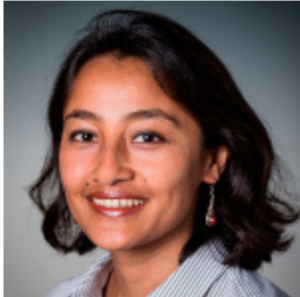 Shangrila Joshi is a Member of the Faculty in Climate Justice at Evergreen. Her talk on on “Climate Justice in Global Context” will be hosted by the Climate Academy (Rachel Hastings). She earned a Ph.D. in Environmental Science, Studies and Policy, with Geography as a focal discipline, from the University of Oregon, an M.A. in International Affairs from Ohio University, and a B.Sc. In Environmental Sciences from St. Xavier’s College, Kathmandu University.
Shangrila Joshi is a Member of the Faculty in Climate Justice at Evergreen. Her talk on on “Climate Justice in Global Context” will be hosted by the Climate Academy (Rachel Hastings). She earned a Ph.D. in Environmental Science, Studies and Policy, with Geography as a focal discipline, from the University of Oregon, an M.A. in International Affairs from Ohio University, and a B.Sc. In Environmental Sciences from St. Xavier’s College, Kathmandu University.
Shangrila is a Newar, an Indigenous Nationality of Nepal. She was born in Patan, Nepal, and spent her formative years there, as well as in Dhaka, Bangladesh and Kabul, Afghanistan. Her academic work has focused on the politics of climate justice and is published in a forthcoming Routledge book Climate Change Justice and Global Resource Commons: Local and Global Postcolonial Political Ecologies. A short piece on some of her work, “REDD+ and the Forest Commons in Nepal,” was recently published by the Tokyo Foundation for Policy Research.
11:30 am- 1:00 pm
The presentation and discussion are posted on You Tube:
